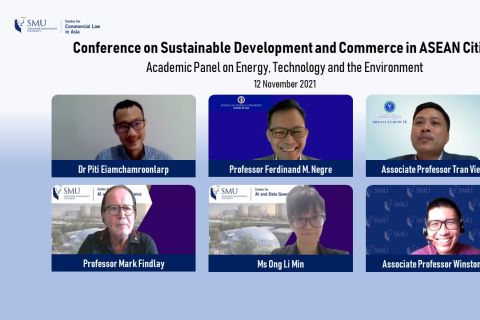
By Grace Segran
SMU Office of Research & Tech Transfer – Older adults are susceptible to age-related problems, such as cognitive decline, low sense of control, low self-esteem, loneliness, poorer subjective well-being, and poorer health. As such, SMU Assistant Professor of Psychology (Education) Andree Hartanto has been trying to identify experiential and psychology factors that can predict healthy ageing.
“Identifying these factors is important so that we can design an effective intervention to promote healthy ageing. Based on existing theories, we believe that one promising experiential factor that can promote healthy ageing is computer use,” he told the Office of Research & Tech Transfer.
This is not the first time Professor Hartanto has worked on ageing. He and his research team have worked on quite a few published projects on healthy ageing before this.
“Other than computer use, several unique experiential and psychological factors that we have identified to promote healthy ageing include gratitude, purpose in life, subjective age, and bilingualism,” he says. “Promoting healthy ageing is complex. There is a need for a holistic approach, taking into account different experiential and psychological factors, in designing an effective intervention.”
The areas of expertise and research of Professor Hartanto include Cultural and Cognitive Psychology; Human Development, Wellbeing and Aging; and Family and Relationship.
Why this study?
According to Professor Hartanto, most of the previous studies rely on cross-sectional designs, small sample sizes, and narrow criteria. As a result, the extant research on the effects of computers suffers from mixed findings.
Using a large scale longitudinal and comprehensive dataset, the current study aims to address these limitations through a holistic approach that focuses on the long-term influences of computer use on a multitude of cognitive, socioemotional, and health domains.
“In so doing, we extend previous research by providing a robust test of the possible benefits of computer use on a wide array of ageing-related outcome variables,” he argues.
The paper is based on the second (II) and third (III) waves of the study on Midlife in the United States (MIDUS). There were 3,294 participants. In MIDUS II, for example, the majority of the participants were midlife adults aged 40 to 65 (72.2 percent) followed by older adults aged above 65 (18.7 percent) and younger adults aged below 40 (9.1 percent). In a subset of this study, 2,683 out of the 3,295 participants took part in the cognitive project component of this study.
“We used well-validated measures of computer use and well-being,” he says. “For cognitive function, participants were tested in a well-validated battery of cognitive function tests comprising the Immediate Word List Recall Task, Backward Digits Span, Categorical Fluency, Stop and Go Switch Task (SGST), Number Series, Backward Counting Task, and Delayed Word List Recall”
Surprising outcomes and practical applications
The research team was very surprised that the results were robust and computer use was associated with positive increment in all the socioemotional and cognitive outcomes, such as life satisfaction, positive affect, personal growth, self-esteem, sense of control, having more close friends, social interactions, executive functions, and episodic memory.
Another surprising result was related to health outcomes. Initially, the researchers expected computer use to be longitudinally associated with poorer health status and lesser physical activities. Surprisingly, they found that computer use in midlife and older adults is not associated with negative changes in obesity, exercise frequency, and number of chronic diseases.
“It appears that one can use computers more and still lead a healthy lifestyle. The positive effects of computer use on participants’ cognitive functioning and socioemotional well-being did not come at a cost to their physical or mental health,” he avers.
The findings offer a comprehensive and holistic understanding of how computer use impacts cognitive, well-being, and health domains. The study highlights frequent computer use as a protective factor against age-related decline and attest to the efficacy of computers in promoting healthy functioning during midlife and old age. Computer use training can be considered as part of intervention to promote healthy ageing.
The studies were done in the U.S. Would the same outcomes and applications apply to other countries with different cultures and lifestyles and educational levels?
Professor Hartanto says it is still an empirical question. They are currently in the midst of preparing to examine this issue in Singapore. “We hope to be able to replicate and validate our findings with samples from other age cohorts and cultures as well as confirm this finding in a large-scale randomized controlled trial in older adults.”
Back to Research@SMU Feb 2022 Issue
See More News
Want to see more of SMU Research?
Sign up for Research@SMU e-newslettter to know more about our research and research-related events!
If you would like to remove yourself from all our mailing list, please visit https://eservices.smu.edu.sg/internet/DNC/Default.aspx

